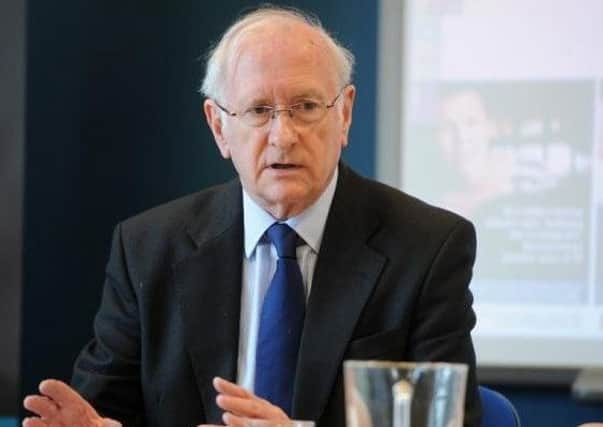Today's columnist, Dr Alan Billings: Just where is the front line?


At each of the hustings earlier this month, at least one of the candidates and someone from the audience said the important thing was to ‘strengthen the front line’. And they went on to explain what they meant.
Some said: “We want more visible policing.”
Others said: “We want more bobbies on the beat,” or “We want to see more yellow jackets on our streets.”
Advertisement
Hide AdAdvertisement
Hide AdAnd of course, the highly visible Police Community Support Officer (PCSO) or uniformed Police Officer is front line – and always very reassuring.
Interestingly, although the number of police officers has fallen in the last six years because of the cuts, you may become more aware of them.
In South Yorkshire, officers are now equipped with laptops and hand-held devices which enable them to stay in the communities longer while they write up their reports.
They do not have to keep going back and forth to a police station to get onto a computer.
Advertisement
Hide AdAdvertisement
Hide AdThey can do it from their cars or by popping into a local library or cafe.
Walking down Ecclesall Road recently I saw two officers doing just that sitting outside a local cafe. This is a good way of keeping police officers in the community and highly visible.
It’s also a good chance for them to have the kind of chats with people that make for a highly effective police force that knows its patch and what the local issues are.
But is that the only front line?
Most people do not contact the police by bumping into them in the street or calling at a police station. They phone. In many ways, therefore, those police staff in the call centre at Atlas Court are just as much the front line as the officer in the street.
Advertisement
Hide AdAdvertisement
Hide AdAnd this is highly skilled work. As soon as a call is received, the call handler needs to understand how to respond effectively. But successive calls can be very different. At one moment the call is an emergency and a decision has to be taken immediately to get a car and officers to the scene. The next moment it is a confused elderly person who needs a lot of help articulating just what it is that has concerned her enough to make a call. Call handlers have to make judgements and get the right response first time.
This is why I have committed considerable sums of money this coming year to getting new technology into the call centre to help get those responses better.